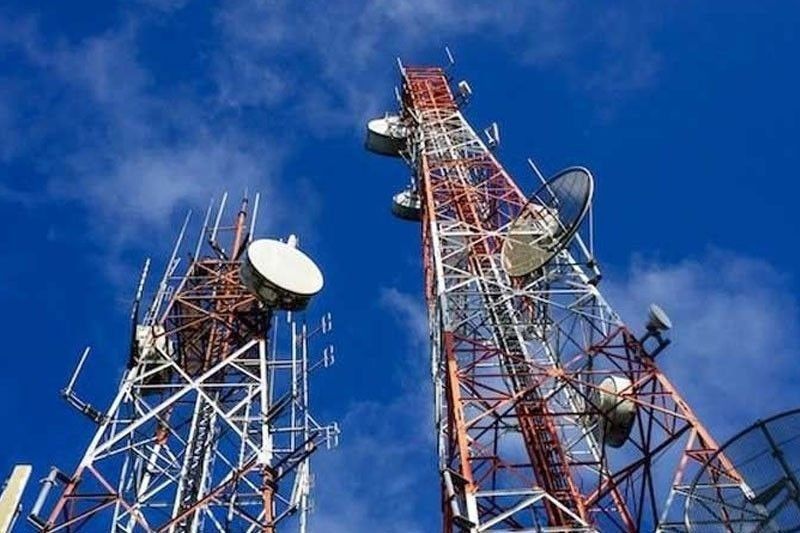Group flags risks of lifting telco entry barriers

MANILA, Philippines — The umbrella group of telco players in the Philippines has raised constitutional, competition and technical concerns on a measure that would open up the connectivity industry, asking the Senate to think twice about its legislation.
The Philippine Chamber of Telecommunications Operators (PCTO) yesterday flagged the risks that come with approving Senate Bill (SB) 2699, authored by Sen. Alan Peter Cayetano.
The senator claims that the bill would simplify the process for telcos in applying for licenses, encouraging competition to the benefit of consumers.
The PCTO said SB 2699 or the Konektadong Pinoy Act would violate the constitutional policy to protect natural resources in its provision to remove the need for a legislative franchise to obtain a radio frequency spectrum.
Congress is playing a vital role in gatekeeping the spectrum by requiring telcos to apply for a legislative franchise prior to getting an allocation. The removal of that procedure might lead to issues on consumer welfare and national security, the group claims.
In particular, abolishing the legislative franchise may open the gates for ill-intent telcos to come in, exposing the Philippines to cybersecurity and national interest problems.
They have also noted that the bill proposes to reduce the regulatory role of the National Telecommunications Commission in granting entry to the sector for foreign players.
The PCTO believes that spectrum should be “treated like water” – a natural monopoly that has to be regulated to protect consumers. It also wants the spectrum to be treated as a resource that should be given out only to trustworthy entities.
The group made the example of the country’s experience in online gaming, where the loosening of entry rules resulted in the deluge of questionable entities from China, forcing President Marcos to ban them all.
The group also finds it unfair that SB 2699 will only eliminate the bureaucratic process for data transmission industry participants (DTIP) with public telecommunications entities excluded.
The group wonders why DTIPs tasked to build backbone networks would be exempted from the same vetting that telcos offering basic telephone services have to go through.
Without a government monitor, PCTO said the Philippines faces the risk of getting flooded by DTIPs that are financially unstable. For example, telco newcomer DITO Telecommunity Corp. complies with a set of service commitments as mandated by its certificate of public convenience and necessity.
The PCTO is composed of the largest providers of connectivity services in the country, including PLDT Inc., Globe Telecom Inc., Converge ICT Solutions Inc. and DITO.
Strengthen law
Meanwhile, digital advocate group Digital Pinoys said amending the Subscriber Identity Module (SIM) Registration Law will be useless if the government fails to fully implement its provisions.
While the proposal of Sen. Sherwin Gatchalian to amend the law is a welcome development, the group’s national campaigner Ronald Gustilo stressed the amendments will not really address the problem of scams if there is no proper enforcement.
“Law enforcement agencies should be well-equipped and be able to do their job with regard to SIM-based cybercrimes because even if the law is strong, without proper enforcement, it will be nothing,” Gustilo said in a statement.
“Even if the government sets a limit to the number of SIMs that an individual or a business entity may own, the cybercriminals will just purchase more registered SIMs via black market vendors. They will even resort to identity theft just to secure more registered SIMs,” he added.
Gustilo said loopholes in the current law should be addressed by introducing stiffer penalties and ensuring that law enforcement agencies are able to stop illegal activities.
“The government should also address reports that messaging platforms such as iMessage for iOS users, Telegram, Viber and other messaging platforms are now being used by scammers,” he said.
He added that while the SIM Registration Law does not cover messaging apps, the government should prepare countermeasures to address the scams within the said apps to avoid a full-blown crisis of spam and scam texts.
Gatchalian on Monday pushed for amendments to the law such as limiting the number of allowed SIMs that can be registered per user and regulating marketing, promotional, political or fundraising using short message services or texts.
Nicasio Conti of CLICK party-list suggested to the Department of Information and Communications Technology to integrate social media accounts and payment gateways into the SIM card registration database to effectively verify SIM card information and fight persistent telco and online fraud in the country.
He said that social media platforms and payment gateways already employ advanced security measures such as two-factor authentication, biometric verification and stringent identity checks.
He also pointed out that the said platforms have extensive digital footprints that can be used to verify the authenticity of users.
“By tying SIM cards to these accounts, we leverage an existing infrastructure designed to protect against fraud and identity theft,” Conti said.
The party-list official has acknowledged the security risks involved in using such measures as “tying SIM cards to social media and payment gateway accounts means that personal information will be more interconnected and potentially more accessible.”
- Latest
- Trending



























